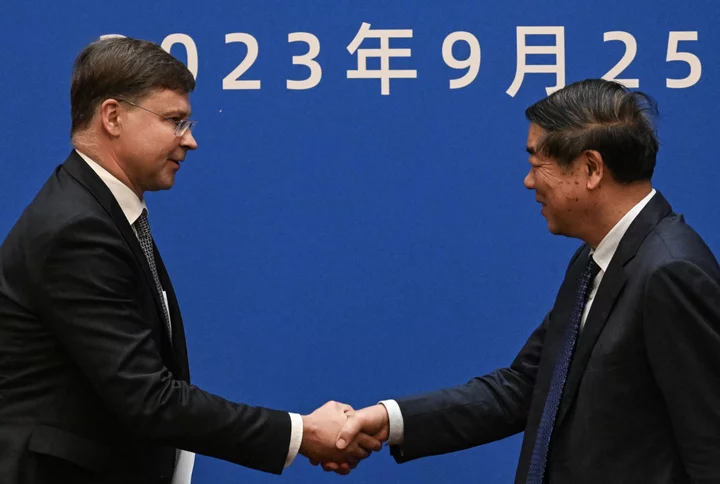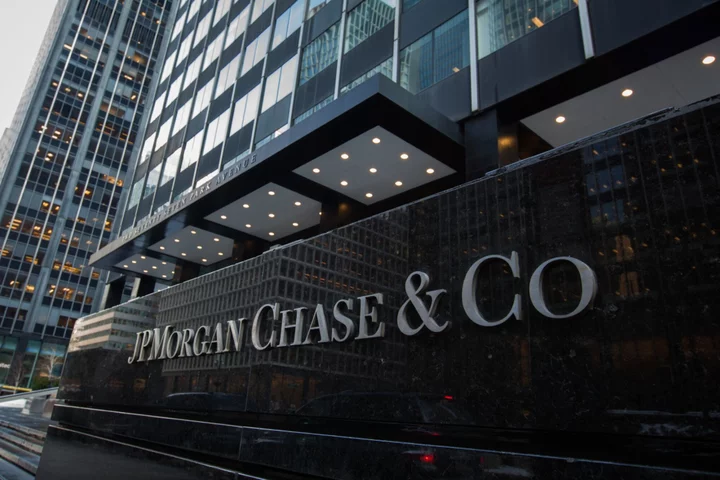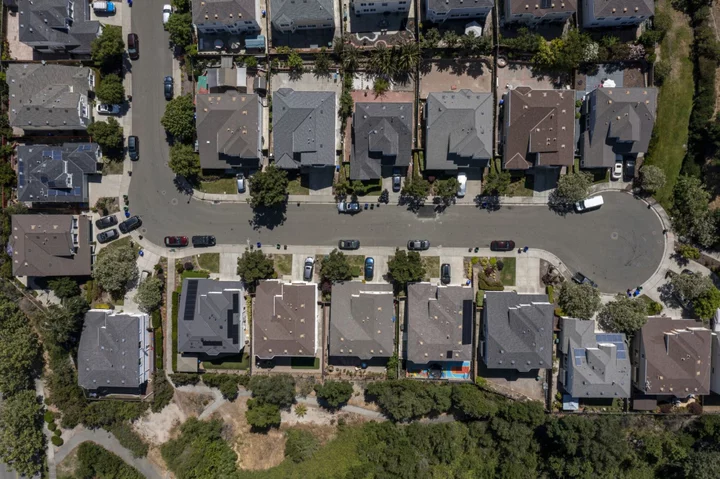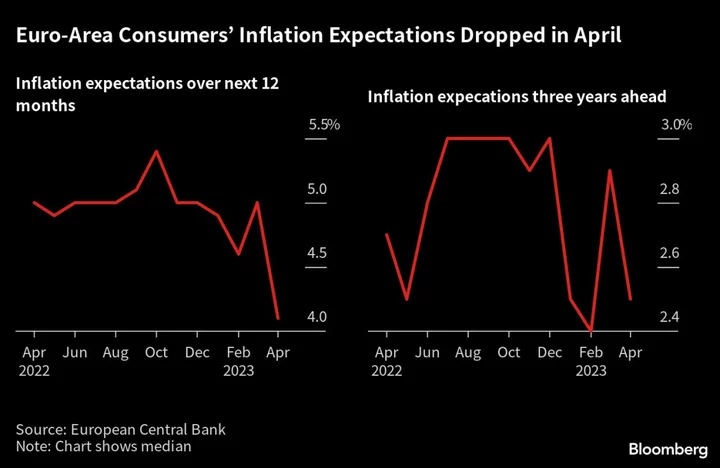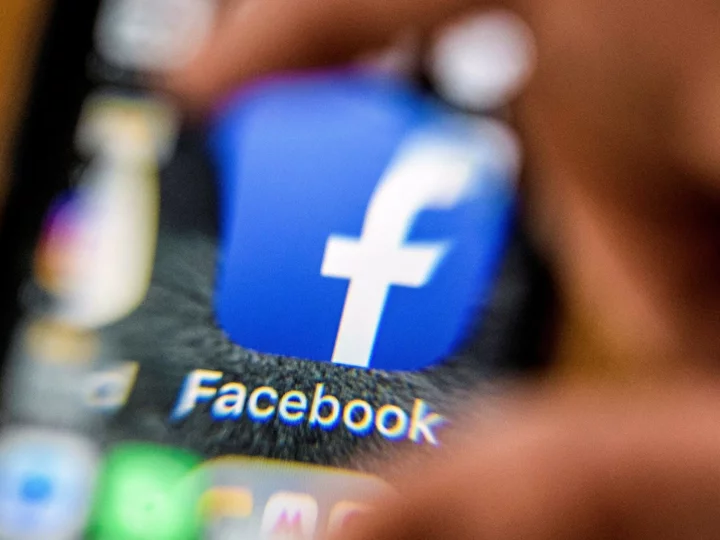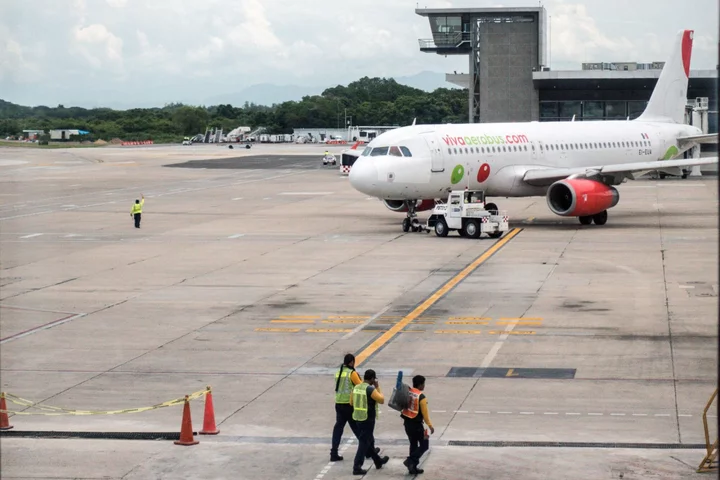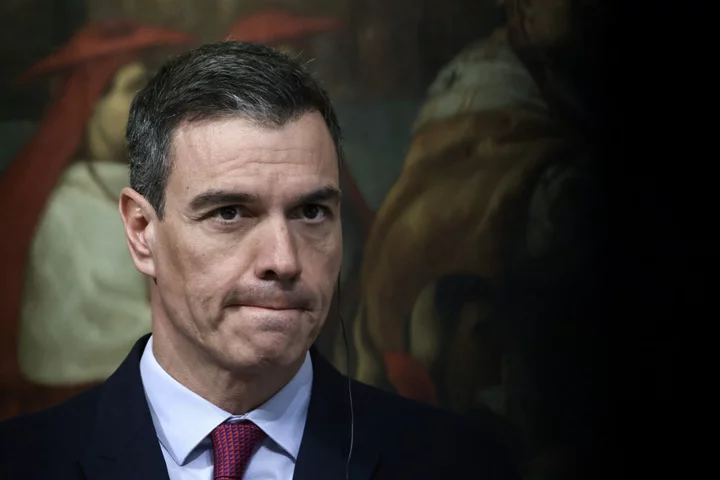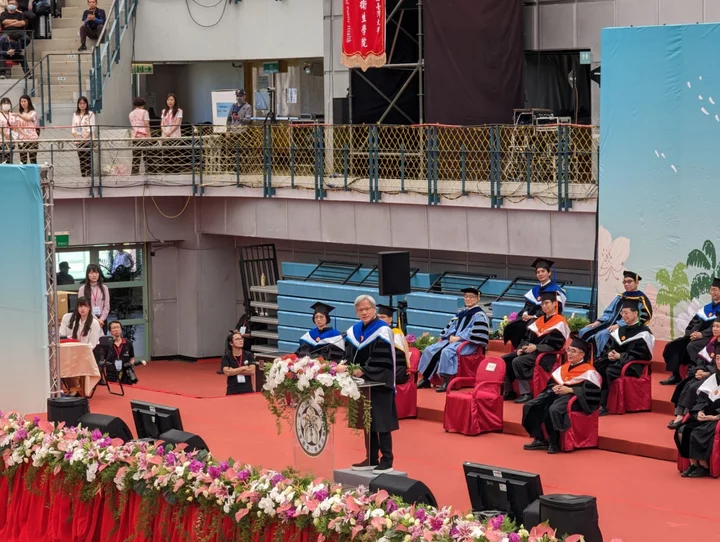The European Union’s chief trade negotiator warned Beijing’s failure to condemn Russia’s war in Ukraine was damaging China’s investment opportunities, as he wrapped a high-stakes trip to the world’s second-largest economy.
Valdis Dombrovskis, an executive vice president at the European Commission, issued some of the bloc’s strongest criticisms yet on President Xi Jinping’s war stance, tying foreign policy to trade ties. The EU official’s press briefing on Tuesday in Beijing capped a four-day trip to China designed to stabilize bilateral relations.
“China’s position is affecting its image, not only with European consumers but also with businesses,” he said. “The war is making it a less attractive investment destination.” The invasion led to a spike in food and energy prices, and the EU can’t understand China’s position, he added.
China claims to be neutral on Russia’s war of aggression, while providing Moscow with diplomatic and economic support.
The EU official’s warning comes about a month after US Commerce Secretary Gina Raimondo said businesses had told her that Communist Party policies were making the nation “too risky” and “uninvestable.” China is on a mission to woo foreign investors and bolster the private sector in a bid to boost its slowing economy.
Wang Yiwei, director of Renmin University’s Center for European Studies, said it was a positive sign that both sides were talking, even if there was still tension.
“Restarting the high-level dialogue means China-EU relations are gradually getting back on track,” he said.
Jens Eskelund, president of the European Union Chamber of Commerce in Beijing, also pointed to the trade discussions as an opportunity to address challenges faced by European businesses in the country. He cited concerns about China’s “increasing focus on national security” and a “growing regulatory ambiguity.”
“These challenges appear to be at odds with the repeated assurances from the Chinese government that China is open for business and on the path of continued opening up,” Eskelund said.
High Stakes
Tensions between Brussels and Beijing flared this month after the EU announced a probe into China’s electric-car subsidies. The move risks sparking a trade war in a relationship involving more than $900 billion in bilateral commerce. That decision also dealt a blow to Xi’s strategy of courting the EU as a counter to US economic challenges.
Dombrovskis defended that decision during his trip, saying the bloc would be “assertive” in protecting its interests. China’s Vice Premier He Lifeng expressed “strong concern and dissatisfaction” over the EV investigation on Monday, after emerging from talks with his European counterpart.
China’s Commerce Ministry said in a statement the two sides had reached a range of agreements, including to establish a communication mechanism for export controls. That mirrored a similar group the US and China recently agreed to establish.
The two sides also pledged to improve relations in their financial industries, speed up market access for EU agricultural products and strengthen cooperation between securities and futures regulatory authorities. Major areas of dispute such as access to government procurement for EU companies, China’s subsidies for its burgeoning EV market and the trade deficit were left on the table.
Dombrovskis said that while the EU didn’t seek a perfectly balanced trade relationship with all its partners, the “dramatic increase” in the bloc’s deficit with China in recent years had forced the group to “take a closer look” at the cause of the change.
The EU executive’s talks took place under the EU-China “High-Level Economic and Trade Dialogue” — a major forum for senior officials to discuss issues relating to macroeconomics, trade irritants, supply chains and financial services. It could be a stepping stone for a summit between Xi and the EU’s Ursula von der Leyen later this year.
--With assistance from Lucille Liu.
(Updates with details throughout.)

